| Season Start: | 06 September 1989 | | Season End: | 06 December 1989 | | Season Length: | 14 Weeks | | Writers: | Ben Aaronovitch, Ian Briggs, Marc Platt and Rona Munro | | Directors: | Alan Wareing, Michael Kerrigan and Nicholas Mallett | | Producer: | John Nathan-Turner | | Script Editor: | Andrew Cartmel | | Visual Effects: | Dave Bezkorowajny, Graham Brown and Malcolm James | | Title Sequence: | Oliver Elmes | | Title Music: | Ron Grainer and the BBC Radiophonic Workshop. Arranged by Keff McCulloch |
|
Incarnation of the Doctor: |
The Seventh Doctor
|
| Number of
Companions: |
2 |
| The
Companions: |
The Brigadier (Rejoins and Departs) and Ace
|
| Number of
Stories: |
4
|
| Number of
Incomplete/Missing Stories: |
0
|
| Number of
Episodes: |
14
|
| Number of
Incomplete/Missing Episodes: |
0
|
| Percentages: |
| Full Stories Held | 100% | | Episodes Held | 100% |
|
| Doctor Who Magazine Poll (1998) | | | Doctor Who Magazine Poll (2009) | | | Doctor Who Magazine Poll (2014) | |
|
 'There are worlds out there where the sky’s burning. Where the sea’s asleep and the rivers dream. People made of smoke and cities made of song. Somewhere there’s danger. Somewhere there’s injustice. And somewhere else the tea is getting cold. Come on Ace we’ve got work to do!' 'There are worlds out there where the sky’s burning. Where the sea’s asleep and the rivers dream. People made of smoke and cities made of song. Somewhere there’s danger. Somewhere there’s injustice. And somewhere else the tea is getting cold. Come on Ace we’ve got work to do!'
The Doctor
(Survival) |
|
|
|
|
| |
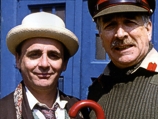 |
| Friends Re-united |
|
 The third season for the Seventh Doctor started on the 6th September 1989 and by the time it finished fourteen weeks later many fans and viewers were left with the feeling that they had seen the show transform to one where there was a much darker and mysterious Seventh Doctor. Unfortunately they had also witnessed what could have been the very last broadcasted Doctor Who story. The third season for the Seventh Doctor started on the 6th September 1989 and by the time it finished fourteen weeks later many fans and viewers were left with the feeling that they had seen the show transform to one where there was a much darker and mysterious Seventh Doctor. Unfortunately they had also witnessed what could have been the very last broadcasted Doctor Who story.
 Like the previous Seventh Doctor’s seasons this season consisted of four stories and fourteen twenty-five-minute episodes. Unusually for a Doctor Who season, aside from some scenes in "Survival", all the stories took place on Earth and apart from "Battlefield", the stories followed a loose character arc (known as the ‘Ace Trilogy’), as Ace came to terms with her past. Season Twenty Six continued to push the series towards a darker approach and as well as focusing this time more on Ace's personal life it also delved a bit more into The Doctor’s past and manipulations of his travelling companion – including the tying together elements mentioned in passing in previous stories. Specifically Ace's journey to Iceworld in the 1987 story "Dragonfire". Like the previous Seventh Doctor’s seasons this season consisted of four stories and fourteen twenty-five-minute episodes. Unusually for a Doctor Who season, aside from some scenes in "Survival", all the stories took place on Earth and apart from "Battlefield", the stories followed a loose character arc (known as the ‘Ace Trilogy’), as Ace came to terms with her past. Season Twenty Six continued to push the series towards a darker approach and as well as focusing this time more on Ace's personal life it also delved a bit more into The Doctor’s past and manipulations of his travelling companion – including the tying together elements mentioned in passing in previous stories. Specifically Ace's journey to Iceworld in the 1987 story "Dragonfire".
 Finally Sylvester McCoy got the chance to portray the Seventh Doctor as he wanted. No incarnation of The Doctor had seen his personality develop so much and as quickly as the Seventh Doctor. Originally, the new Doctor was portrayed as something of a clown - tripping over himself, spouting tangled clichés, and apparently saving the day more by accident than by design - although his vast intelligence was still evident. As time went on, the Seventh Doctor darkened considerably as hints were unveiled that there was far more to his past - and to himself - than had previously been made known. The Seventh Doctor began meeting his foes on his own terms. He became more of an aggressor than any of his previous incarnations, and even his companions were not safe from the tangles of the webs he wove. The results were often more devastating and more decisive than ever before. All this became much more apparent in Season Twenty Seven – and who knows how The Doctor, Ace and the show as a whole would have developed had it continued beyond this season. Finally Sylvester McCoy got the chance to portray the Seventh Doctor as he wanted. No incarnation of The Doctor had seen his personality develop so much and as quickly as the Seventh Doctor. Originally, the new Doctor was portrayed as something of a clown - tripping over himself, spouting tangled clichés, and apparently saving the day more by accident than by design - although his vast intelligence was still evident. As time went on, the Seventh Doctor darkened considerably as hints were unveiled that there was far more to his past - and to himself - than had previously been made known. The Seventh Doctor began meeting his foes on his own terms. He became more of an aggressor than any of his previous incarnations, and even his companions were not safe from the tangles of the webs he wove. The results were often more devastating and more decisive than ever before. All this became much more apparent in Season Twenty Seven – and who knows how The Doctor, Ace and the show as a whole would have developed had it continued beyond this season.
 Behind the cameras not much had changed from the previous season. Producer John Nathan-Turner had once again been forced to produce another season. Even though he was happier with this position during Season Twenty Five – thanks to a better working relationship with the show’s Script Editor and that Sylvester McCoy was more settled in the role as the Seventh Doctor. John Nathan-Turner however, was again faced with an ultimatum: produce Doctor Who or quit the BBC. And so reluctantly, John Nathan-Turner was back at the helm for his ninth, and his final season. Behind the cameras not much had changed from the previous season. Producer John Nathan-Turner had once again been forced to produce another season. Even though he was happier with this position during Season Twenty Five – thanks to a better working relationship with the show’s Script Editor and that Sylvester McCoy was more settled in the role as the Seventh Doctor. John Nathan-Turner however, was again faced with an ultimatum: produce Doctor Who or quit the BBC. And so reluctantly, John Nathan-Turner was back at the helm for his ninth, and his final season.
 This season heralded two new writers Marc Platt ("Ghost Light") and Rona Munro ("Survival"). It also saw the second televised story written by Ben Aaronovitch ("Battlefield"). Both Marc Platt and Ben Aaronovitch would go on to write numerous spin-off stories, including The New Adventures novels for Virgin Books and the Doctor Who audios for Big Finish Productions. This season heralded two new writers Marc Platt ("Ghost Light") and Rona Munro ("Survival"). It also saw the second televised story written by Ben Aaronovitch ("Battlefield"). Both Marc Platt and Ben Aaronovitch would go on to write numerous spin-off stories, including The New Adventures novels for Virgin Books and the Doctor Who audios for Big Finish Productions.
 The first story, that made up Season Twenty Six, was "Battlefield" which featured the return of Nicholas Courtney as The Brigadier – his last appearance in the show. This story was also the first UNIT story since 1976. The second story was the confusing but awe-inspiring "Ghost Light" and this was followed by the breathtaking themes of "The Curse of Fenric". The season concluded with "Survival" and contained the first appearance of Anthony Ainley, as The Master, since the 1986 Sixth Doctor story "The Ultimate Foe" - the final two episodes of The Trial of a Time Lord season. "Survival" though was his last televised appearance in the show. It was also the final story for Sophie Aldred, as companion Ace. The first story, that made up Season Twenty Six, was "Battlefield" which featured the return of Nicholas Courtney as The Brigadier – his last appearance in the show. This story was also the first UNIT story since 1976. The second story was the confusing but awe-inspiring "Ghost Light" and this was followed by the breathtaking themes of "The Curse of Fenric". The season concluded with "Survival" and contained the first appearance of Anthony Ainley, as The Master, since the 1986 Sixth Doctor story "The Ultimate Foe" - the final two episodes of The Trial of a Time Lord season. "Survival" though was his last televised appearance in the show. It was also the final story for Sophie Aldred, as companion Ace.
 It is though "Ghost Light" that has the claim to fame as being the final story to be recorded, even though it was the second to be broadcast. "Ghost Light" therefore marked the final regular participation in the show for Sophie Aldred (who was only contracted for the first eight episodes of what would have been Season Twenty Seven), Andrew Cartmel and of course John Nathan-Turner. It is though "Ghost Light" that has the claim to fame as being the final story to be recorded, even though it was the second to be broadcast. "Ghost Light" therefore marked the final regular participation in the show for Sophie Aldred (who was only contracted for the first eight episodes of what would have been Season Twenty Seven), Andrew Cartmel and of course John Nathan-Turner.
 It was not clear whether or not Andrew Cartmel would have continued as Doctor Who's script editor for any future seasons. Following the completion of Season Twenty Six, Andrew Cartmel worked on the drama series Casualty for a year before leaving television to write for various computer-related magazines. Andrew Cartmel wrote three novels for Virgin Books’ The New Adventures series. These were: "Cat's Cradle: Warhead", "Warlock" and "Warchild". He also wrote the Doctor Who audio story "Winter for the Adept" for Big Finish Productions. It was not clear whether or not Andrew Cartmel would have continued as Doctor Who's script editor for any future seasons. Following the completion of Season Twenty Six, Andrew Cartmel worked on the drama series Casualty for a year before leaving television to write for various computer-related magazines. Andrew Cartmel wrote three novels for Virgin Books’ The New Adventures series. These were: "Cat's Cradle: Warhead", "Warlock" and "Warchild". He also wrote the Doctor Who audio story "Winter for the Adept" for Big Finish Productions.
 Despite his protestations to the contrary, John Nathan-Turner would have likely been forced to remain on Doctor Who for Season Twenty Seven. He finally left the BBC in August 1990, but maintained his relationship with the show for several years thereafter, producing several special video releases, and producing and co-writing the Thirtieth Anniversary Children In Need special "Dimensions in Time" in 1993. Despite his protestations to the contrary, John Nathan-Turner would have likely been forced to remain on Doctor Who for Season Twenty Seven. He finally left the BBC in August 1990, but maintained his relationship with the show for several years thereafter, producing several special video releases, and producing and co-writing the Thirtieth Anniversary Children In Need special "Dimensions in Time" in 1993.
 Sophie Aldred continued to act, both in television (concentrating on children's programming) and in the theatre. She returned to play Ace in "Dimensions in Time" and in the 2001 BBC Online audio adventure "Death Comes to Time". She can also still be heard in several Big Finish Productions audio releases. Sophie Aldred also recounted her time on Doctor Who in the 1996 book Ace! that was co-written by Visual Effects Designer Mike Tucker. Sophie Aldred continued to act, both in television (concentrating on children's programming) and in the theatre. She returned to play Ace in "Dimensions in Time" and in the 2001 BBC Online audio adventure "Death Comes to Time". She can also still be heard in several Big Finish Productions audio releases. Sophie Aldred also recounted her time on Doctor Who in the 1996 book Ace! that was co-written by Visual Effects Designer Mike Tucker.
 Sylvester McCoy had considered leaving Doctor Who after this season but was persuaded to remain for one more year. It was though very likely that Season Twenty Seven would have been his last. Like Sophie Aldred, Sylvester McCoy still works prolifically on stage and screen, and returned to play The Doctor in "Dimensions in Time" and "Death Comes to Time". He can also still be heard playing the Seventh Doctor in the Big Finish Productions audio stories. "Ghost Light" though was not his last involvement in a televised Doctor Who story as he would record a regeneration scene for the 1996 Eighth Doctor film "Doctor Who: The Movie" - so giving him the chance to hand over properly to the Eighth Doctor. Sylvester McCoy had considered leaving Doctor Who after this season but was persuaded to remain for one more year. It was though very likely that Season Twenty Seven would have been his last. Like Sophie Aldred, Sylvester McCoy still works prolifically on stage and screen, and returned to play The Doctor in "Dimensions in Time" and "Death Comes to Time". He can also still be heard playing the Seventh Doctor in the Big Finish Productions audio stories. "Ghost Light" though was not his last involvement in a televised Doctor Who story as he would record a regeneration scene for the 1996 Eighth Doctor film "Doctor Who: The Movie" - so giving him the chance to hand over properly to the Eighth Doctor.
 By the time recording for this season finished it was not realised that it would be the final season of the original run of the show. Even when the first episode of the final three-part story "Survival" was broadcast it was still not certain that this was the case but John Nathan-Turner had his suspicions. It soon though became clear that the next season, that was already being planned, was going to be at the very least delayed, and possibly not occur at all - so making "Survival" potentially the final Doctor Who story to be broadcast. Because of this it was felt that a more suitable conclusion should be given to the final episode. Andrew Cartmel therefore wrote an appropriate short closing monologue for actor Sylvester McCoy to say which was then dubbed over the closing scene as The Doctor and Ace walk off into the distance, apparently to further adventures. By the time recording for this season finished it was not realised that it would be the final season of the original run of the show. Even when the first episode of the final three-part story "Survival" was broadcast it was still not certain that this was the case but John Nathan-Turner had his suspicions. It soon though became clear that the next season, that was already being planned, was going to be at the very least delayed, and possibly not occur at all - so making "Survival" potentially the final Doctor Who story to be broadcast. Because of this it was felt that a more suitable conclusion should be given to the final episode. Andrew Cartmel therefore wrote an appropriate short closing monologue for actor Sylvester McCoy to say which was then dubbed over the closing scene as The Doctor and Ace walk off into the distance, apparently to further adventures.
 And so as the final episode of "Survival" was broadcast, on the 6th December 1989, the show ended. There was no direct indication given to the public that this was to be the final regular instalment of Doctor Who. However, unlike previous season’s final episode, the final episode of Season Twenty Six featured no announcement in the closing credits that the show would return the following year. And so as the final episode of "Survival" was broadcast, on the 6th December 1989, the show ended. There was no direct indication given to the public that this was to be the final regular instalment of Doctor Who. However, unlike previous season’s final episode, the final episode of Season Twenty Six featured no announcement in the closing credits that the show would return the following year.
 With this season containing such great stories with a number of memorable and key-elements – many of which set the tone for the spin-off media and some were have even been carried forward and used when the show finally returned in 2005 - and with great plans for the future, surely the show had been safe from cancellation? Unfortunately, at the time the answer was – No. By the time "Ghost Light" began airing in October 1989, it was already clear that Doctor Who was in trouble. The show’s viewing figures had been low ever since the 1985-86 hiatus between Season Twenty Two and Season Twenty Three, and although there had been some signs of improvement the previous year. Compared to previous stories the ratings for "Battlefield" had sunk even lower to the point that this story actually received the lowest ratings of any Doctor Who story. Unfortunately, the viewing figures for "Ghost Light" were not much better. The BBC held a second press launch to promote the final two stories of the season and the situation did improve somewhat. But the damage had already been done and the decision was finally taken by the BBC to place Doctor Who on hiatus, indefinitely. With this season containing such great stories with a number of memorable and key-elements – many of which set the tone for the spin-off media and some were have even been carried forward and used when the show finally returned in 2005 - and with great plans for the future, surely the show had been safe from cancellation? Unfortunately, at the time the answer was – No. By the time "Ghost Light" began airing in October 1989, it was already clear that Doctor Who was in trouble. The show’s viewing figures had been low ever since the 1985-86 hiatus between Season Twenty Two and Season Twenty Three, and although there had been some signs of improvement the previous year. Compared to previous stories the ratings for "Battlefield" had sunk even lower to the point that this story actually received the lowest ratings of any Doctor Who story. Unfortunately, the viewing figures for "Ghost Light" were not much better. The BBC held a second press launch to promote the final two stories of the season and the situation did improve somewhat. But the damage had already been done and the decision was finally taken by the BBC to place Doctor Who on hiatus, indefinitely.
 Despite assurances that Doctor Who would return, and that it was just a longer-than-usual wait before the next season, the show’s cancellation was virtually a forgone conclusion when the BBC finally announced, during 1990, that it would not be producing a 27th season. Not only did this mark the end of Doctor Who in the Eighties, but it also brought its time as an ongoing show to a close. Despite persistent promises, from the BBC, this so called ‘hiatus’ was effectively a cancellation and this was all but confirmed when the BBC’s Doctor Who production office finally closed down in August 1990, having been in continuous operation since 1963. Despite assurances that Doctor Who would return, and that it was just a longer-than-usual wait before the next season, the show’s cancellation was virtually a forgone conclusion when the BBC finally announced, during 1990, that it would not be producing a 27th season. Not only did this mark the end of Doctor Who in the Eighties, but it also brought its time as an ongoing show to a close. Despite persistent promises, from the BBC, this so called ‘hiatus’ was effectively a cancellation and this was all but confirmed when the BBC’s Doctor Who production office finally closed down in August 1990, having been in continuous operation since 1963.
 Doctor Who was gone, yet not forgotten... two years later, the Virgin Books’ The New Adventures range of original novels would begin, telling the further adventures of the Seventh Doctor and Ace (along with new companions including Bernice Summerfield, Chris Cwej and Roslyn Forrester) and this would develop into a second range, known as The Missing Adventures, which would cater for the growing interest in original stories for the previous incarnations of The Doctor. Doctor Who was gone, yet not forgotten... two years later, the Virgin Books’ The New Adventures range of original novels would begin, telling the further adventures of the Seventh Doctor and Ace (along with new companions including Bernice Summerfield, Chris Cwej and Roslyn Forrester) and this would develop into a second range, known as The Missing Adventures, which would cater for the growing interest in original stories for the previous incarnations of The Doctor.
 But this was not the end of Doctor Who on our television screens. The Seventh Doctor did return, in 1996, for that all important regeneration scene in the one-off Eighth Doctor film "Doctor Who: The Movie" that was co-produced by the BBC and FOX Television. This though was a long way off and Doctor Who fans would have a very long wait before the show returned to our screens and an even longer wait for the show to return for another full season of stories... But this was not the end of Doctor Who on our television screens. The Seventh Doctor did return, in 1996, for that all important regeneration scene in the one-off Eighth Doctor film "Doctor Who: The Movie" that was co-produced by the BBC and FOX Television. This though was a long way off and Doctor Who fans would have a very long wait before the show returned to our screens and an even longer wait for the show to return for another full season of stories...
|
|
|
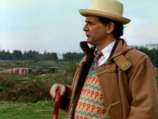 |
| The Seventh Doctor |
|
 Despite once again containing, once again, only four stories this season contains plenty of things to watch out for. The first story, "Battlefield", contains the return of one of Doctor Who’s most popular of characters. This is Alistair Gordon Lethbridge-Stewart who is better known as The Brigadier. This much liked character, that became a fundamental part of the show during the Third Doctor’s era, returned after a six year absence, with Nicholas Courtney reprising this famous Doctor Who role. Look out for the scenes, at the beginning and very end, where we get to see The Brigadier enjoying his retirement with, for the first time in the show, by his long-mentioned sweetheart (now wife) Doris. Despite once again containing, once again, only four stories this season contains plenty of things to watch out for. The first story, "Battlefield", contains the return of one of Doctor Who’s most popular of characters. This is Alistair Gordon Lethbridge-Stewart who is better known as The Brigadier. This much liked character, that became a fundamental part of the show during the Third Doctor’s era, returned after a six year absence, with Nicholas Courtney reprising this famous Doctor Who role. Look out for the scenes, at the beginning and very end, where we get to see The Brigadier enjoying his retirement with, for the first time in the show, by his long-mentioned sweetheart (now wife) Doris.
 It is clear that "Battlefield" owed a lot to the legend of King Arthur – even to the point of Ace obtaining a sword and then appearing out of the lake with it clutched in her hand. So mimicking the legend of Excalibur and the Lady from the lake. It is clear that "Battlefield" owed a lot to the legend of King Arthur – even to the point of Ace obtaining a sword and then appearing out of the lake with it clutched in her hand. So mimicking the legend of Excalibur and the Lady from the lake.
 The most memorable scene from "Ghost Light", the second story of this season, was when all the insects, that up until now have all been dead natural history specimens, come to life. This made the creepy house, that The Doctor has taken Ace to, even more creepy and mysterious. The most memorable scene from "Ghost Light", the second story of this season, was when all the insects, that up until now have all been dead natural history specimens, come to life. This made the creepy house, that The Doctor has taken Ace to, even more creepy and mysterious.
 The best story of this season though is "The Curse of Fenric". Look out for some brilliant scenes for both The Doctor and Ace as they interact with each other and the other human characters as well as the vampires and Haemomovores. With a secret naval base, the invasion of Russian soldiers, the strange mists and strange goings on underwater in the nearby North Sea results in a classic and well liked story of the Seventh Doctor’s era. The best story of this season though is "The Curse of Fenric". Look out for some brilliant scenes for both The Doctor and Ace as they interact with each other and the other human characters as well as the vampires and Haemomovores. With a secret naval base, the invasion of Russian soldiers, the strange mists and strange goings on underwater in the nearby North Sea results in a classic and well liked story of the Seventh Doctor’s era.
 In this story also look out for the scenes where Ace falls in love with Kathleen’s baby – which she is not aware is in fact, thanks to the TARDIS being a time machine, her mother - whom she hates. Unknown to Ace when she gets Kathleen to leave the naval base with her baby, before the Haemomovores attack, to go and stay at her Nan’s house results in Ace creating her own future. This story also reveals that it was Fenric who created the time storm that brought Ace to Iceworld in the 1987 story "Dragonfire". In this story also look out for the scenes where Ace falls in love with Kathleen’s baby – which she is not aware is in fact, thanks to the TARDIS being a time machine, her mother - whom she hates. Unknown to Ace when she gets Kathleen to leave the naval base with her baby, before the Haemomovores attack, to go and stay at her Nan’s house results in Ace creating her own future. This story also reveals that it was Fenric who created the time storm that brought Ace to Iceworld in the 1987 story "Dragonfire".
 In the final story, "Survival", you need to ignore the very poor portrayal of the Kittlings and the unrealistic Cheetah People costumes. Then you get a great story with The Master trapped on the Cheetah Planet who is desperate to escape, Ace being taken over by the planet and influenced by Karra to join her in the hunt. In the final story, "Survival", you need to ignore the very poor portrayal of the Kittlings and the unrealistic Cheetah People costumes. Then you get a great story with The Master trapped on the Cheetah Planet who is desperate to escape, Ace being taken over by the planet and influenced by Karra to join her in the hunt.
 At the start there are mysterious disappearances, strange cat-like creatures on horseback and the comical scenes of The Doctor trying to capture a cat unaware at first that he is being monitored from afar by The Master. It is though the scene in the General Store with Sylvester McCoy and comedian duo Hale and Pace that is one of the more memorable scenes. But it is the very last scene when The Doctor and Ace walk off together into the distance, supposedly for new adventures, that is considered to be the key moment in the show’s history – unfortunately all for the wrong reasons. At the start there are mysterious disappearances, strange cat-like creatures on horseback and the comical scenes of The Doctor trying to capture a cat unaware at first that he is being monitored from afar by The Master. It is though the scene in the General Store with Sylvester McCoy and comedian duo Hale and Pace that is one of the more memorable scenes. But it is the very last scene when The Doctor and Ace walk off together into the distance, supposedly for new adventures, that is considered to be the key moment in the show’s history – unfortunately all for the wrong reasons.
|
|
|
 |
| Ace |
|
 After celebrating its Twenty-Fifth Anniversary, and with the show seemingly having overcome the turbulent years during the Sixth Doctor’s era, expectations were high that this would continue into this season and beyond. Unfortunately, viewing figures were still low – mainly due to the show once again being broadcast mid-week and at the same time as ITV’s soap opera Coronation Street. After celebrating its Twenty-Fifth Anniversary, and with the show seemingly having overcome the turbulent years during the Sixth Doctor’s era, expectations were high that this would continue into this season and beyond. Unfortunately, viewing figures were still low – mainly due to the show once again being broadcast mid-week and at the same time as ITV’s soap opera Coronation Street.
 Going by the viewing figures at the time "Survival" was the most watched (by 4.9 million viewers) with "Battlefield" watched the least (by only 3.6 million viewers). So low was "Battlefield" that this story actually received Doctor Who’s lowest ratings in its history with only 3.1 million people watching the first episode. Going by the viewing figures at the time "Survival" was the most watched (by 4.9 million viewers) with "Battlefield" watched the least (by only 3.6 million viewers). So low was "Battlefield" that this story actually received Doctor Who’s lowest ratings in its history with only 3.1 million people watching the first episode.
 Subsequent polls carried out by the Doctor Who Magazine have not changed the position of "Battlefield" as being the least liked story of this season. The only difference between these polls and the original viewing figures is that "The Curse of Fenric" has become the favourite story of Season Twenty Six. Subsequent polls carried out by the Doctor Who Magazine have not changed the position of "Battlefield" as being the least liked story of this season. The only difference between these polls and the original viewing figures is that "The Curse of Fenric" has become the favourite story of Season Twenty Six.
 "Battlefield"’s position possible is an unfair one as it does contain the return of one of Doctor Who’s most popular of characters – Namely: Alistair Gordon Lethbridge-Stewart (who is better known as The Brigadier). Also making a return in this story is Bessie – The Doctor’s yellow roadster - appearing for the first time since "The Five Doctors". These elements, plus the return of UNIT and the fact that this story was written by Ben Aaronovitch – who would go on to write a number of popular spin-off novels – should have resulted in a much better story. "Battlefield" suffered due to it trying to set its roots in the legend of King Arthur and the fact that it was not clear where Morgaine, Mordered, Ancelyn and the armoured knights had come from. Nor was it explained why the knights greet The Doctor as ‘Merlin’. "Battlefield"’s position possible is an unfair one as it does contain the return of one of Doctor Who’s most popular of characters – Namely: Alistair Gordon Lethbridge-Stewart (who is better known as The Brigadier). Also making a return in this story is Bessie – The Doctor’s yellow roadster - appearing for the first time since "The Five Doctors". These elements, plus the return of UNIT and the fact that this story was written by Ben Aaronovitch – who would go on to write a number of popular spin-off novels – should have resulted in a much better story. "Battlefield" suffered due to it trying to set its roots in the legend of King Arthur and the fact that it was not clear where Morgaine, Mordered, Ancelyn and the armoured knights had come from. Nor was it explained why the knights greet The Doctor as ‘Merlin’.
 The next story, "Ghost Light", written by Marc Platt unfortunately faired no better with its viewing figures. Partially suffering due to the lack of viewers for "Battlefield" Marc Platt’s three-part story was viewed at the time as being a very confusing and rather incoherent storyline. The story was at the time criticised as having an indistinct storyline with various sub-plots staggered throughout. It has been revealed that at the time of recording even the cast and director were confused by the script, and so had to make repeated calls to Marc Platt for explanations. Only with repeat viewing does one stand a chance of fully understanding the storyline and it is then that you hopefully realise how awe-inspiring "Ghost Light" really is. Thanks to it being released on VHS and then DVD this story is now considered by many fans to be one of the best stories of the Seventh Doctor’s era and certainly set the tone for The New Adventures novels that followed. The next story, "Ghost Light", written by Marc Platt unfortunately faired no better with its viewing figures. Partially suffering due to the lack of viewers for "Battlefield" Marc Platt’s three-part story was viewed at the time as being a very confusing and rather incoherent storyline. The story was at the time criticised as having an indistinct storyline with various sub-plots staggered throughout. It has been revealed that at the time of recording even the cast and director were confused by the script, and so had to make repeated calls to Marc Platt for explanations. Only with repeat viewing does one stand a chance of fully understanding the storyline and it is then that you hopefully realise how awe-inspiring "Ghost Light" really is. Thanks to it being released on VHS and then DVD this story is now considered by many fans to be one of the best stories of the Seventh Doctor’s era and certainly set the tone for The New Adventures novels that followed.
 The high point of the season though goes to its final two stories; "The Curse of Fenric" and "Survival". The latter of these, and the last story of the original run of the show, saw the welcome return of The Master played for the final time, in a televised story, by Anthony Ainley. This story was also the final story of what is now classed as the ‘Ace Trilogy’ – a series of three stories, that started with "Ghost Light", that focused more on Ace's personal life it and delved a bit more into The Doctor’s past and manipulations of his travelling companion. The high point of the season though goes to its final two stories; "The Curse of Fenric" and "Survival". The latter of these, and the last story of the original run of the show, saw the welcome return of The Master played for the final time, in a televised story, by Anthony Ainley. This story was also the final story of what is now classed as the ‘Ace Trilogy’ – a series of three stories, that started with "Ghost Light", that focused more on Ace's personal life it and delved a bit more into The Doctor’s past and manipulations of his travelling companion.
 This trilogy may have started in "Ghost Light" but it was in "The Curse of Fenric" that Ace’s past finally caught up with her. This story is considered, and rightly so, to be one of the best during the Seventh Doctor’s era. Yes it does have its weak points but overall "The Curse of Fenric" is a well structured story and, for the character of Ace, it shows how The Doctor’s companion has grown since Ace first met The Doctor in "Dragonfire". This trilogy may have started in "Ghost Light" but it was in "The Curse of Fenric" that Ace’s past finally caught up with her. This story is considered, and rightly so, to be one of the best during the Seventh Doctor’s era. Yes it does have its weak points but overall "The Curse of Fenric" is a well structured story and, for the character of Ace, it shows how The Doctor’s companion has grown since Ace first met The Doctor in "Dragonfire".
 The final story of the season is considered to be both a high and low point of this season. As well as seeing the return of The Master, we witness Ace nearly succumbing to the Cheetah People’s planet and her interaction with Karra. But of course "Survival" was for many years seen as being the final Doctor Who story. But now, thanks to the show’s revival in 2005, this story is now remembered as being the final story of the original run of the show and so is now more appreciated. The final story of the season is considered to be both a high and low point of this season. As well as seeing the return of The Master, we witness Ace nearly succumbing to the Cheetah People’s planet and her interaction with Karra. But of course "Survival" was for many years seen as being the final Doctor Who story. But now, thanks to the show’s revival in 2005, this story is now remembered as being the final story of the original run of the show and so is now more appreciated.
 With the prospect of no more stories being made the era in the show that became to be known as The Wilderness Years had just started. The first half of this part of the show’s history would last for six years. Fans would have to wait this long before the show would return briefly to our screens and we would finally see the Seventh Doctor generate into the Eighth Doctor… With the prospect of no more stories being made the era in the show that became to be known as The Wilderness Years had just started. The first half of this part of the show’s history would last for six years. Fans would have to wait this long before the show would return briefly to our screens and we would finally see the Seventh Doctor generate into the Eighth Doctor…
|
|
|
|
|
| |
The Firsts:
 The first re-appearance of The Brigadier (played by Nicholas Courtney) since the 1983 Twentieth Anniversary special "The Five Doctors". (Battlefield) The first re-appearance of The Brigadier (played by Nicholas Courtney) since the 1983 Twentieth Anniversary special "The Five Doctors". (Battlefield)
 The first appearance of Bessie since the 1983 Twentieth Anniversary special "The Five Doctors". (Battlefield) The first appearance of Bessie since the 1983 Twentieth Anniversary special "The Five Doctors". (Battlefield)
 The first Doctor Who story to be written by Marc Platt. (Ghost Light) The first Doctor Who story to be written by Marc Platt. (Ghost Light)
 The first Doctor Who story to be awarded its own individual soundtrack album. (The Curse of Fenric) The first Doctor Who story to be awarded its own individual soundtrack album. (The Curse of Fenric)
 Anthony Ainley’s first appearance in the show since the 1986 Sixth Doctor story "The Ultimate Foe". (Survival) Anthony Ainley’s first appearance in the show since the 1986 Sixth Doctor story "The Ultimate Foe". (Survival)
|
| |
The Lasts (Subject to Future Stories):
 Nicholas Courtney's last Doctor Who story as The Brigadier. (Battlefield) Nicholas Courtney's last Doctor Who story as The Brigadier. (Battlefield)
 The last story to feature UNIT until the 2005 Ninth Doctor story "Aliens of London/World War Three". (Battlefield) The last story to feature UNIT until the 2005 Ninth Doctor story "Aliens of London/World War Three". (Battlefield)
 The last Doctor Who story, of the original run of the show, to be recorded. (Ghost Light) The last Doctor Who story, of the original run of the show, to be recorded. (Ghost Light)
 The final 'historical' story of the original run of the show. (The Curse of Fenric) The final 'historical' story of the original run of the show. (The Curse of Fenric)
 The last Doctor Who story to be written by Ian Briggs. (The Curse of Fenric) The last Doctor Who story to be written by Ian Briggs. (The Curse of Fenric)
 The final transmitted Doctor Who story of the original run of the show. (Survival) The final transmitted Doctor Who story of the original run of the show. (Survival)
 The last Doctor Who story to entirely feature Sylvester McCoy as the Seventh Doctor. (Survival) The last Doctor Who story to entirely feature Sylvester McCoy as the Seventh Doctor. (Survival)
 Sophie Aldred's last regular story as companion Ace. (Survival) Sophie Aldred's last regular story as companion Ace. (Survival)
 Anthony Ainley’s last Doctor Who story as The Master. (Survival) Anthony Ainley’s last Doctor Who story as The Master. (Survival)
 John Nathan-Turner's last involvement in the show as Producer. (Survival) John Nathan-Turner's last involvement in the show as Producer. (Survival)
 Andrew Cartmel's last involvement in the show as Script Editor. (Survival) Andrew Cartmel's last involvement in the show as Script Editor. (Survival)
|
| |
| Doctor Who CMS Magazine (In Vision) | Issue 105: Season 26 Overview - (Released: December 2002) | | Doctor Who Magazine - Episode Guide | Issue 164 - (Released: September 1990) | | Doctor Who Magazine - Episode Guide | Issue 175 - (Released: July 1991) | | Doctor Who Magazine - Countdown to 50 | Issue 456 - (Released: February 2013) |
| Only the First 50 Additional Stories are shown below - Click to Show All Additional Stories | | Title | Release Date (UK) | Format | Source | Companions | | Timewyrm: Genesys | July 1991 | Novel | The New Adventures | Ace | | Timewyrm: Exodus | August 1991 | Novel | The New Adventures | Ace | | Timewyrm: Apocalypse | October 1991 | Novel | The New Adventures | Ace | | Timewyrm: Revelation | December 1991 | Novel | The New Adventures | Ace | | Cat's Cradle: Time's Crucible | February 1992 | Novel | The New Adventures | Ace | | Cat's Cradle: Warhead | April 1992 | Novel | The New Adventures | Ace | | Cat's Cradle: Witch Mark | June 1992 | Novel | The New Adventures | Ace | | Nightshade | August 1992 | Novel | The New Adventures | Ace | | Love and War | October 1992 | Novel/Audio | The New Adventures | Ace and Bernice Summerfield | | Transit | December 1992 | Novel | The New Adventures | Bernice Summerfield | | The Highest Science | February 1993 | Novel | The New Adventures | Bernice Summerfield | | The Pit | March 1993 | Novel | The New Adventures | Bernice Summerfield | | Deceit | April 1993 | Novel | The New Adventures | Ace and Bernice Summerfield | | Lucifer Rising | May 1993 | Novel | The New Adventures | Ace and Bernice Summerfield | | White Darkness | June 1993 | Novel | The New Adventures | Ace and Bernice Summerfield | | Shadowmind | July 1993 | Novel | The New Adventures | Ace and Bernice Summerfield | | Birthright | August 1993 | Novel | The New Adventures | Ace and Bernice Summerfield | | Iceberg | September 1993 | Novel | The New Adventures | Ace and Bernice Summerfield | | Blood Heat | October 1993 | Novel | The New Adventures | Ace, Bernice Summerfield, The Brigadier, Liz Shaw, Jo Grant and Sergeant Benton | | The Dimension Riders | November 1993 | Novel | The New Adventures | Ace and Bernice Summerfield | | The Left-Handed Hummingbird | December 1993 | Novel | The New Adventures | Ace and Bernice Summerfield | | Conundrum | January 1994 | Novel | The New Adventures | Ace and Bernice Summerfield | | No Future | February 1994 | Novel | The New Adventures | Ace, Bernice Summerfield, The Brigadier and Captain Mike Yates | | Playback | March 1994 | Short Story | Decalog | | | Tragedy Day | March 1994 | Novel | The New Adventures | Ace and Bernice Summerfield | | Legacy | April 1994 | Novel | The New Adventures | Ace and Bernice Summerfield | | Theatre of War | May 1994 | Novel | The New Adventures | Ace and Bernice Summerfield | | All-Consuming Fire | June 1994 | Novel | The New Adventures | Ace and Bernice Summerfield | | Blood Harvest | July 1994 | Novel | The New Adventures | Ace, Bernice Summerfield and 2nd Romana | | Strange England | August 1994 | Novel | The New Adventures | Ace and Bernice Summerfield | | First Frontier | September 1994 | Novel | The New Adventures | Ace and Bernice Summerfield | | St Anthony's Fire | October 1994 | Novel | The New Adventures | Ace and Bernice Summerfield | | Falls the Shadow | November 1994 | Novel | The New Adventures | Ace and Bernice Summerfield | | Warlock | January 1995 | Novel | The New Adventures | Ace and Bernice Summerfield | | Set Piece | February 1995 | Novel | The New Adventures | Ace and Bernice Summerfield | | Infinite Requiem | March 1995 | Novel | The New Adventures | Bernice Summerfield | | Sanctuary | April 1995 | Novel | The New Adventures | Bernice Summerfield | | Human Nature | May 1995 | Novel | The New Adventures | Bernice Summerfield | | Original Sin | June 1995 | Novel | The New Adventures | Bernice Summerfield, Roslyn Forrester and Chris Cwej | | Question Mark Pyjamas | July 1995 | Short Story | Decalog 2 - Lost Property | Ace and Bernice Summerfield | | The Trials of Tara | July 1995 | Short Story | Decalog 2 - Lost Property | Bernice Summerfield | | Sky Pirates! | July 1995 | Novel | The New Adventures | Bernice Summerfield, Roslyn Forrester and Chris Cwej | | Zamper | August 1995 | Novel | The New Adventures | Bernice Summerfield, Roslyn Forrester and Chris Cwej | | Toy Soldiers | September 1995 | Novel | The New Adventures | Bernice Summerfield, Roslyn Forrester and Chris Cwej | | Head Games | October 1995 | Novel | The New Adventures | Bernice Summerfield, Roslyn Forrester, Chris Cwej, Melanie Bush and Ace | | The Also People | November 1995 | Novel | The New Adventures | Bernice Summerfield, Roslyn Forrester and Chris Cwej | | Shakedown | December 1995 | Novel | The New Adventures | Bernice Summerfield, Roslyn Forrester and Chris Cwej | | Just War | January 1996 | Novel | The New Adventures | Bernice Summerfield, Roslyn Forrester and Chris Cwej | | Warchild | February 1996 | Novel | The New Adventures | Bernice Summerfield, Roslyn Forrester and Chris Cwej | | Sleepy | March 1996 | Novel | The New Adventures | Bernice Summerfield, Roslyn Forrester and Chris Cwej | | Show All Additional Stories >>>> |
|
|
| |
The Doctor and Companions| | 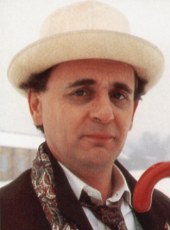 | | The Seventh Doctor |
|
| | | | |
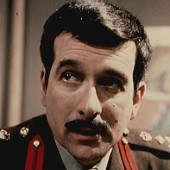 | | The Brigadier |
| |  | | Ace |
| | | | |
|
On Release | | The Collection Season 26 Limited Edition Blu-Ray Cover |

VIDEO |
| | 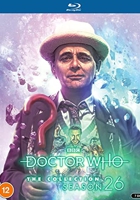 | | The Collection Season 26 Standard Edition Blu-Ray Cover |

VIDEO |
| | | | |
Magazines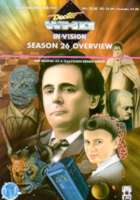 | | Doctor Who CMS Magazine (In Vision): Issue 105: Season 26 Overview |
|  | | Doctor Who Magazine - Episode Guide: Issue 164 |
| 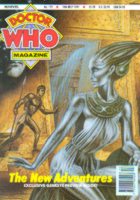 | | Doctor Who Magazine - Episode Guide: Issue 175 |
|  | | Doctor Who Magazine - Countdown to 50: Issue 456 |
| | | | |
|
|
|
| |
| |
|
| |
| |
|
| Doctor Who is the copyright of the British Broadcasting
Corporation. No infringements intended. This site is not endorsed by the BBC or
any representatives thereof. |
|